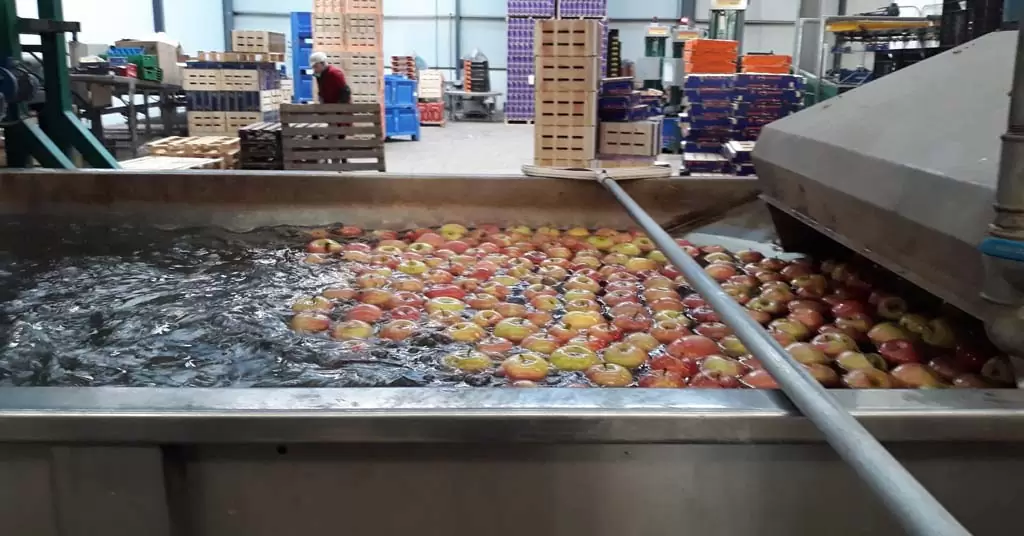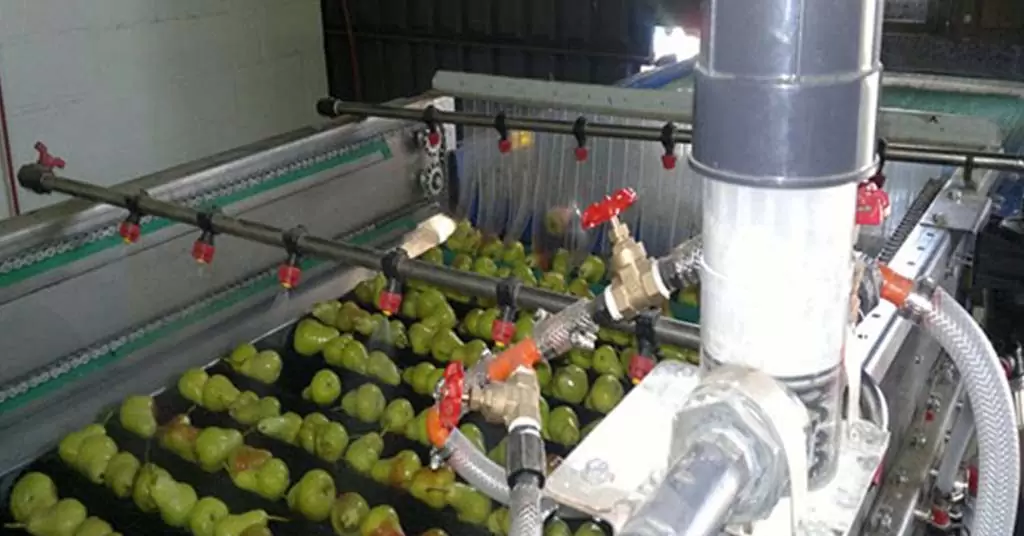what actions can you take in your restaurant to reduce the environmental impact of vegetable washing in the catering industry? You will find the answer to this question in this post, specially written for catering managers like you who are concerned about helping to care for the planet.
In Spain, washing fruit, vegetables and greens is a daily activity for the entire catering sector. Unfortunately, the high water consumption involved in this activity has a negative impact on the environment.
Fortunately, there are actions that you can implement in your business to combat the environmental impact of washing fruit and vegetables in the catering industry. Read on to find out what they are.
Water use in the fresh-cut industry
Fresh-cut products are washed and chopped vegetables that keep their natural values intact. These fruits and vegetables are not subjected to any heat treatment and no additives or preservatives are added.

These products of vegetable origin require washing to remove dirt. This is because they are exposed to contact with soil, dust and other agents present in the vegetable itself, which are harmful to the health of the diner.
However, washing and disinfecting the product involves an unconscious use of water in each of its phases:
- Initial rinsing: This is carried out to remove the coarse remains of the product.
- Application of natural detergent: Generally applied in the form of foam.
- Application of mechanical energy: This is done by projecting pressurised water at high speed and rinsing the natural detergent.
- Application of the disinfectant: A final rinse is carried out with drinking water.
Environmental impact of washing vegetables in the catering industry
Generally, washing one kilo of salad in a catering business uses more than 20 litres of water. This amount can generate a significant environmental impact of vegetable washing in the catering industry and economic costs for the establishment.
It is necessary to understand that we cannot create water, just as we create energy. This means that catering entrepreneurs are obliged to make conscious use of the water we have on the planet, as it is necessary for the existence of mankind.
On the other hand, we know that chlorine is used to decontaminate fruit and vegetables in the fresh-cut industry. The bad news is that chlorine is on the list of the main pollutants in the world’s water. Moreover, it poses risks to food safety.
If hospitality entrepreneurs do not raise awareness when washing vegetables in their establishments, the rate of water contamination will continue to grow and humanity will face a drinking water crisis.
5 measures to reduce the environmental impact of vegetable washing in the catering industry
For the catering industry, it is important to develop sustainable measures to optimise the process of washing fruit and vegetables. Practically, it is a matter of creating a mechanism that reduces microbial risk and water consumption, without compromising the organoleptic properties of these products.

For example, some measures you can apply in your restaurant to reduce the environmental impact of washing vegetables are:
1. Install efficient taps
The double flushing cistern is a device that will allow you to save water when washing vegetables. This is due to the fact that it flushes out 3 to 6 litres of water per flush, which is less than a conventional cistern.
It is worth noting that the installation of a double flush cistern is low cost. This means that not only will they help you save 60% of your drinking water, but they will also save you a lot of money.
2. Recycle water
Water left over after washing vegetables can be filtered and disinfected for reuse. Nowadays, there are many catering businesses that use this recycled water to irrigate their gardens.
You can also use it for cleaning the establishment, for example. The point is that this action will help you save 45% of drinking water in your restaurant, an important figure for the care of the planet.
3. Avoid using soap or disinfectants
It is important not to use soap or disinfectants when washing vegetables. Firstly, because they pose food safety risks and secondly because they cause more water to be used when rinsing produce, which multiplies the environmental impact of washing vegetables in the catering industry.
Remains of disinfectant products on vegetables can cause food poisoning. This is why they are discouraged by certain bodies relevant to the sector such as the FDA(Food and Drugs Administration).
4. Wash vegetables only when using them
To reduce the environmental impact of washing vegetables in the catering industry, we advise you to wash fruit and vegetables only when you are going to use them in a recipe or before peeling them. If you wash them for storage, they run the risk of being soiled by other produce and you will have to wash them again.
This means that you will have to use twice as much water to wash the same product. In case the product comes dirty from the shop and you are not going to use it right away, just rub the dirt off and then store it.
5. Raise awareness among your staff
These sustainable measures should be a policy in your restaurant’s kitchen if you really want to make a positive contribution to the planet. Therefore, you must impart the knowledge with your staff to be most effective.
In fact, you can involve your entire team in looking for measures to save water consumption during vegetable washing. In this way you will promote group participation, while everyone is working towards the same environmental goal.
have you seen how the environmental impact of vegetable washing in the catering industry is real and can affect us all equally? Caring for the planet is a task that corresponds to all of us and everyone can do it in the field where they work. That is why we show you how you can do your bit in your catering business.

